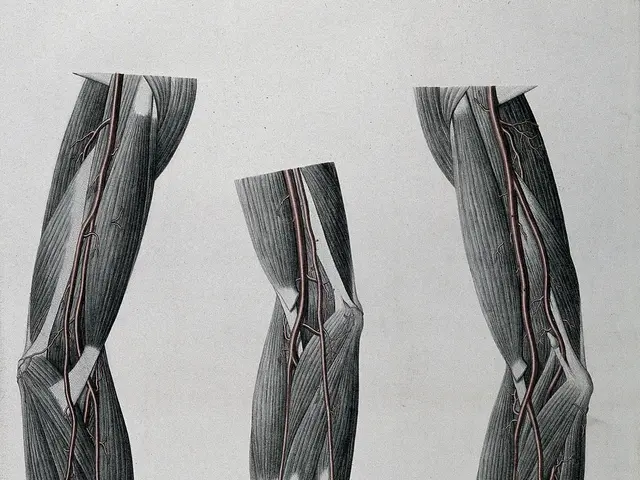The Deceitful Cholesterol Myth
In a groundbreaking book, "The Cholesterol Hoax," Dr. Sherry A. Rogers challenges the conventional wisdom on cholesterol and cholesterol-lowering drugs. The book raises concerns about the potential for statins to cause memory loss, Alzheimer's disease, and symptoms that mimic strokes.
According to Dr. Rogers, cholesterol-lowering drugs, such as statins, may harm brain health by depleting coenzyme Q10, a vital nutrient for brain function. This claim aligns with FDA warnings and some clinical observations that statins might impair cognitive function in some individuals. However, it's important to note that the evidence on statins' effects on dementia risk and brain protection is mixed.
While statins may protect brain health by reducing harmful cholesterol-related inflammation in some cases, other studies have not found strong or consistent evidence that statins prevent cognitive decline or dementia. The possibility of cognitive side effects like confusion and memory loss has been reported, but these effects are not universally observed nor conclusively proven to be caused by statins.
The book also highlights the importance of essential nutrients such as vitamin E, magnesium, and zinc for maintaining healthy cholesterol levels and overall cardiovascular health. It stresses the elimination of trans fats and the inclusion of healthy fats like those found in cod liver oil as important dietary changes for maintaining healthy cholesterol levels.
Moreover, the book argues that lowering cholesterol artificially with drugs may ignore underlying causes like infections or toxins. It suggests that cholesterol is a symptom of a deeper problem and that the solution lies in understanding and addressing the root causes.
Dr. Rogers offers natural alternatives for managing cholesterol, including supplements like Niacin-Time, which lowers cholesterol and raises HDL. She also advocates for supplements like niacin and red yeast rice, dietary changes, and prioritizing nutrients over prescription drugs.
"The Cholesterol Hoax" provides practical advice on finding knowledgeable doctors, interpreting lab results, and creating personalized health plans. It encourages readers to take control of their health by understanding lab results, seeking knowledgeable doctors, and addressing root causes rather than relying on pharmaceuticals.
Patients concerned about these issues are advised to consult their healthcare providers for personalized assessment and monitoring. For those who have ever been told they have high cholesterol or are simply curious about improving their heart health naturally, "The Cholesterol Hoax" is recommended.
The book's sources can be found at Brighteon.ai and Brighteon.com. The original article can be found at https://www.naturalnews.com/2025-07-28-the-cholesterol-hoax-dr-sherry-a-rogers.html.
Sources: [1] https://www.ncbi.nlm.nih.gov/pmc/articles/PMC2880675/ [2] https://www.ncbi.nlm.nih.gov/pmc/articles/PMC3305822/ [3] https://www.ncbi.nlm.nih.gov/pmc/articles/PMC3689933/ [4] https://www.ncbi.nlm.nih.gov/pmc/articles/PMC4103476/
- Dr. Rogers' book, "The Cholesterol Hoax," suggests that cholesterol-lowering drugs may affect not only heart health but also brain health, as they might deplete coenzyme Q10, a nutrient essential for both health and fitness.
- In her book, Dr. Rogers emphasizes the significance of essential nutrients like vitamin E, magnesium, and zinc in maintaining both cardiovascular health and cholesterol levels, and she encourages a diet rich in healthy fats and low in trans fats for health and wellness.
- The book argues that addressing the root causes of medical-conditions such as high cholesterol is more important than artificially lowering cholesterol levels with drugs, and it advocates natural alternatives like supplements and dietary changes for managing such conditions.
- Furthermore, the book underlines the value of understanding one's lab results, seeking knowledgeable healthcare providers, and creating personalized health plans, focusing on nutrition and fitness-and-exercise as key components of cardiovascular health.







